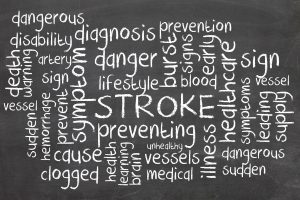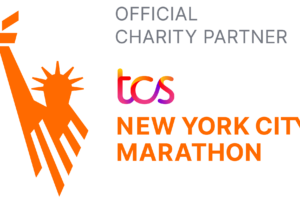Survey of AFib Patients Demonstrates Gaps in Awareness of Stroke Risk and Perceived Barriers Associated with Anticoagulation Therapy
While most patients affected by atrial fibrillation (AFib) know what a blood clot is, more than one-quarter (27%) surveyed said they were not told by their doctor or other heal thcare professional that they were at risk for blood clots that can lead to a stroke due to their irregular heartbeat, according to survey results that were shared by the National Blood Clot Alliance (NBCA) at the 2011 Scientific Sessions of the American Heart Association, in Orlando, FL, November 12 through 16.
thcare professional that they were at risk for blood clots that can lead to a stroke due to their irregular heartbeat, according to survey results that were shared by the National Blood Clot Alliance (NBCA) at the 2011 Scientific Sessions of the American Heart Association, in Orlando, FL, November 12 through 16.
Data from NBCA’s online survey of 500 AFib patients, enrolled from an online research panel, show that:
- The majority of patients surveyed (91%) know what a blood clot is, and virtually all of these respondents (99%) recognize blood clots as life threatening.
- However, more than 1/4 of patients (27%) said they were not told by their doctor or other healthcare professional that they were at risk for blood clots that can lead to a stroke due to AFib.
- More than 1/4 of respondents (27%) also reported that they had not been told how blood clots can be prevented.
- Among all patients surveyed, 60% said that they were not given additional information or referred to other information sources about blood clots and stroke.
These survey findings clearly demonstrate that, despite generally good awareness levels among AFib patients about blood clots, information gaps do remain and opportunities exist for improved patient education, and that interventions are needed to fill awareness gaps among AF patients about blood clot formation and stroke risk.
NBCA’s Blood Clot and Stroke Risk Awareness Survey was conducted in response to the growing recognition of AFib as a public health burden. AFib is the most common type of arrhythmia (abnormal heart rhythm), affecting an estimated 2.6 million people in the U.S. The irregular heartbeat associated with AFib disrupts blood flow through the heart and can cause blood clots that can lead to a stroke to form. AFib patients have a five-fold increased risk for ischemic stroke. AFib mortality rates, as a primary or underlying cause of death, have increased in the past two decades, and the public health impact of AFib is expected to grow as up to 5.6 million people are projected to be affected by AFib by the year 2050.
Survey Findings: Blood Clot and Stroke Prevention
With regard to blood clot prevention associated with the risk of stroke in AFib patients, the survey showed that:
- Aspirin use was reported by 333 AFib patients as the most widely used (67%) treatment for the prevention of blood clots.
- Just more than half (52%) or 259 respondents said they were given warfarin therapy.
- Just 12% or 59 patients surveyed said they were given low molecular weight heparin.
Among warfarin users surveyed (n=259):
- Nearly 1/3 (32%) said the therapy was moderately/very difficult to use.
- Among the group of patients surveyed who thought warfarin was moderately/very difficult to use (n=84), warfarin treatment barriers were cited as: the need for regular blood tests (76%), bleeding (70%), bruising (63%), dosing changes (57%), drug interactions (50%), dietary restrictions (48%).
These findings suggest that AFib patients should be provided information to help them better understand the role of different anticoagulation options.
Survey Methodology
 The objectives of this survey were to assess the hypotheses that there are gaps in a) AFib patient awareness of blood clot and stroke risk and b) the use of evidence-based prophylaxis to prevent blood clots that cause stroke.
The objectives of this survey were to assess the hypotheses that there are gaps in a) AFib patient awareness of blood clot and stroke risk and b) the use of evidence-based prophylaxis to prevent blood clots that cause stroke.
The survey, conducted by the national survey firm USA/Direct, Inc., involved a nationally representative online survey of 500 AF patients. Mean patient age: 57.93 (4% aged 20-39, 82% aged 40-69, 14% aged 70-80+); 53% female.
For more information, contact NBCA at info@stoptheclot.org
The NBCA Blood Clot and Stroke Risk Awareness Survey was made possible by a grant from Janssen Pharmaceuticals, Inc.
More AFib Resources
AFib Frequently Asked Questions
At a Glance: Blood Thinners Prevent Stroke in Atrial Fibrillation
How to Take Blood Thinners Safely to Prevent Stroke with Atrial Fibrillation
Questions to Prompt Discussion with Your Doctor about Blood Thinners
See the CDC Fact Sheet on Stroke
For more information about AFib, visit the American Heart Association’s AFib Town or read the AFib Five





